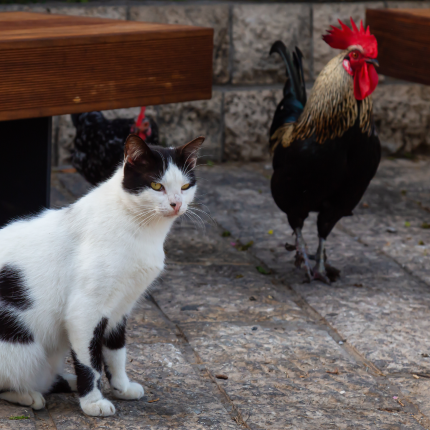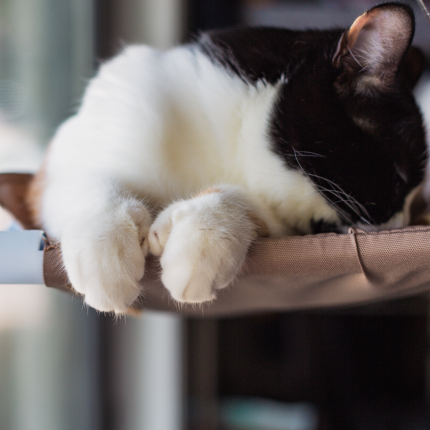How Chicken Eggs May Be a Solution for Cat Allergies

Cat allergies, characterized by sneezing, itching, and runny eyes and nose, are often triggered by cat dander, which harbors allergens. Surprisingly, these allergens are minuscule, about one-tenth the size of dust allergens, making them even smaller than pollen, mold, or dust mites.
What makes matters worse is that once disturbed, cat dander becomes airborne, lingering in the environment for hours after you’ve interacted with your feline friend. No wonder friends with cat allergies may avoid your home.
Recent research suggests a novel approach to alleviate these allergies, potentially bringing relief to millions worldwide—not through the allergy sufferers but rather through dietary changes for the cats themselves.
The primary allergen responsible for the allergic reactions is Fel d1, a protein primarily found in cat saliva. Cats transfer this allergen to their fur and dander during grooming; when you pet them or use a brush, the allergen is released into the environment, perpetuating the cycle of allergies. It turns out, when a chicken is exposed to this allergen, they naturally produce an anti-Fel d1 antibody, known as polyclonal egg IgY antibodies, which they pass along to their eggs.
Scientists have significantly reduced active Fel d1 levels at their source: the cat’s saliva. They’ve harnessed natural allergen-antibody interactions by binding Fel d1 to an anti-Fel d1 antibody in chicken eggs. This binding process reduces the levels of Fel d1 in a cat’s saliva, thus decreasing the active allergen that enters the environment through grooming.
In an experimental study, cats were fed a diet containing this egg product with the IgY antibody. The results were promising, with 97% of the cats showing decreased levels of active Fel d1 on their hair and dander. On average, there was a 47% reduction in active Fel d1 on their fur after three weeks on this special diet.
If this approach proves effective, it could be a game-changer for cat allergy sufferers. Individuals can keep their beloved cats without using immunotherapy or allergy shots.
However, it’s essential to note that this is a more complex DIY solution. Merely feeding your cat chicken eggs won’t address the issue because anti-Fel d1 IgY antibodies don’t naturally occur in chicken eggs. Researchers exposed chickens to Fel d1 protein, prompting them to produce antibodies and lay eggs containing the anti-Fel d1 IgY antigen.
When these eggs were incorporated into cat food, the anti-Fel d1 antibodies neutralized Fel d1 in the cat’s saliva. As the cats groomed themselves, the antigen adhered to their fur.
Could a person with cat allergies protect themselves by consuming eggs containing anti-Fel d1 IgY? Unfortunately, it’s not that simple. Even if such eggs existed, they wouldn’t effectively neutralize allergic reactions because the IgY antibodies wouldn’t spread to the necessary areas, such as the cat’s dander. Additionally, these antibodies are rapidly destroyed upon ingestion, making dietary changes ineffective for allergy sufferers.

Featured Articles

Greebles and Cats: The Origin and the Meaning
You may have seen an internet sensation concerning cats labeled “greebles.” Feel out of the loop? We’re here to help you. In 2019, Reddit user /user/literallyatree commented on a Reddit post about a cat that looks like it’s trying to slap a ghost. This user commented: “My family calls things…

Polydactyl Cats: Just More Beans to Love
Polydactyl cats have become extremely popular in recent times. As a result, more and more people are interested in learning more about this six-toed cat and want to get one of their own. If you are a cat lover intrigued by polydactyl cats, you have come to the right place….

Why Do Cats Roll Over Into Their Backs But Not Let You Touch Their Bellies?
It’s common knowledge dogs love to have their tummies rubbed when they freely lay down before you and roll onto their backs. But, if you’re also familiar with cats, you know that when they roll onto their backs with their bellies exposed, rubbing the belly will most likely result in…
